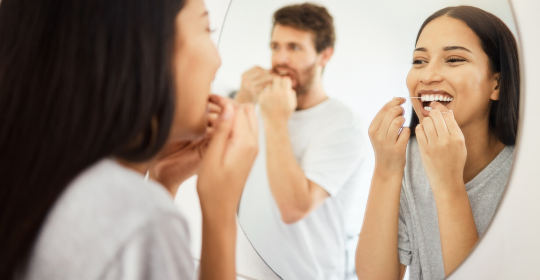 21 September 2022
21 September 2022
Pregnancy is an exciting time – life as you know it is about to change forever! While mothers to be are encouraged to eat well, avoid smoking and drinking alcohol, and to generally take care of themselves, it is important to also consider your dental health at this time.
In a perfect world, before even becoming pregnant, you would visit your Dentist for a check up. That way, any recommended dental treatment can be carried out prior to the pregnancy. Maintaining good oral health during pregnancy will assist in avoiding dental problems.
When you become pregnant it is important to let your Dentist know prior to commencing any treatment. It is also important to continue routine visits to your Dentist during your pregnancy. Most dental treatment can be carried out safely during this time, however elective procedures requiring general anaesthetic or intravenous sedation are usually deferred until after the baby is born and preferably until breast feeding has ceased. In general, elective treatment not requiring general anaesthetic or intravenous sedation is best performed during the second trimester (the fourth, fifth and sixth months) if carried out at all.
Dental x-rays during pregnancy
If dental x-rays are necessary for assessment or diagnosis of infection or trauma, or for treatment of these conditions, there is no reason on radiation protection grounds, to defer them. The Australian Radiation Protection and Nuclear Safety Agency recommend the use of a leaded drape when the x-ray beam is directed at the patient’s body. However, pending the circumstances your dentist may prefer to defer x-rays until after the pregnancy.
Hormone changes
Pregnancy itself can cause changes in your mouth. Pregnancy hormones change the blood supply to your gums and can change the way your gums react to the bacteria in plaque. Pregnancy gingivitis (inflammation of the gums) can occur, most liking during the second trimester, causing redness, bleeding and swelling of the gums. According to the University of Adelaide Research Unit, gingivitis affects up to 70% of pregnant women.
Periodontitis is a more severe form of gingivitis, and teeth and gums may be left with permanent damage if not treated. Some studies have linked severe periodontitis with premature birth, low birth weight, pre-eclampsia and gestational diabetes.
Morning sickness
Unfortunately many women suffer morning sickness during their pregnancy. There are some important things to remember in regards to morning sickness and your teeth.
Vomiting coats your teeth with strong stomach acids which can lead to erosion of tooth enamel if it occurs often enough. To neutralise the acid a fluoride mouth rinse can be used, however where this is not available rinsing your mouth thoroughly with tap water will help.
Delay brushing after vomiting for approximately 30 minutes if possible so that you avoid microabrasion of the tooth surface when it has been softened by stomach acid.
If you do experience morning sickness and brushing your teeth leads to gagging, try using a child’s toothbrush until this subsides.
Diet
Unusual food cravings can be a part of pregnancy, as can be snacking on more food than you usually would. Maintain a nutritious diet, with plenty of fruit and vegetables, lean meats and calcium rich foods. Try and stick to healthy snacks – cut down on sticky and sugary snacks. Avoid caffeine, soft drinks, sports drinks and alcohol. Eat a piece of fruit instead of drinking fruit juice. Try and drink tap water every day.
Pregnancy dental checklist:
- If possible, see your Dentist before becoming pregnant to carry out any necessary dental treatment
- See your Dentist early in your pregnancy to check your oral health and gain advice on how best to avoid or minimise pregnancy gingivitis
- Inform your Dentist that you are pregnant before any treatment commences
- If you suffer from morning sickness, avoid brushing your teeth straight after vomiting and use a fluoride mouth rinse
- Brush at least twice a day with fluoride toothpaste and a soft brush
- Maintain a nutritious diet throughout pregnancy, limiting unhealthy snacks and drinks
- Drink plenty of tap water
If you would like to see a dentist at Pacific Smiles Dental, find your closest dental centre or book an appointment online





